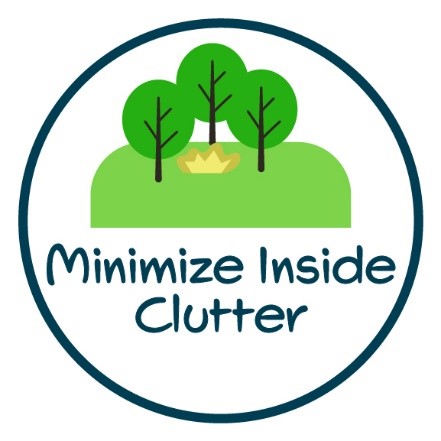
Cracking the Mind Chatter Code
Do you hear voices in your head?
Not ones associated with mental health conditions like schizophrenia, but the mind chatter that originates from external and internal sources.
Here’s an example from a Weight Watchers commercial I saw a lot in January, 2023:
Customer: “Can I return this negative self-talk?”
Weight Watchers Service Desk: “Did you get it here?”
Customer: “No, I think I got it from social media.”
WW: “Lots of people are returning these; they are very unpopular.”
The problem is that these thoughts get in the way of your life!
| Stuff | Time & Tasks | |
| Mind Chatter | You’ve made time to organize. You know it’d be helpful to delete some possessions. The minute your put an item into the donate, recycle, or consign pile you “hear” something like:
|
You might have a goal to consistently leave work on time or to finish your most important tasks in a timely manner. Then one or more voices taunt you with:
|
| Issue |
If you usually listen to that voice, you’ll retain about the same number of possessions and your organizing efforts will stall.
|
Your schedule will rarely be manageable if you allow others to control it.
|
You may not be aware of these voices if they’ve been with you for a long time. Even if you are cognizant of them, you may still believe them!
Surprise!
You don’t have to pay attention to these internal comments! There are tactics you can learn to counteract.
Awareness: At each decision point, become aware of when your mind is voicing its’ opinion.
Origination: Who or what is talking? Is it a relative, friend, colleague, or a “voice of authority”? What are they saying? Is it associated with a fear? Could it be due to a lack of clarity? Is it about something from the past?
Cessation: Knowing who and what is behind the musings of your mind determines how they can be stopped.
Here are some specific tools that you’ll find useful.
- Talk back. Related to stuff: “I know you still have some use left, and since I haven’t used you in awhile, I’ll give you to someone else.” About a task: “This report is complete enough.” Regarding time: “Since there are only 24 hours in a day, I’ve decided that my time is better used doing <this> than <that>.”
- Give permission. “I give myself permission to <x> despite what my mind chatter says.”
- Make a statement. “I get to make choices about <x>. I will make decisions that work for me.”
- Challenge. “I will not listen to you!”
If you know my story, you know that I’m a recovering overachieving, perfectionist, people-pleaser. Since 2017, I’ve had a number of major surgeries. As a business owner, it’s important for me to serve my clients well.
Sometimes recovery and working are at odds.
For instance, it’s hard for me to take off the amount of time suggested by my doctors. I often do work tasks or interact with clients before my body is ready, which means it takes longer to recuperate. It’s also difficult for me to make the time for specific rehabilitation activities like physical therapy. I’m convinced that I can do less and still mend in record time! This rarely ends well!
I’m learning to set better boundaries by giving clients a realistic idea of when I’ll be able to resume our work together. And if I need extra time to recuperate, I tell them as soon as I know. I create a schedule that allows me to fully recover. And I constantly remind myself that all of this is okay.
I’m not saying that this is easy. I’m a work in progress!
A major part of cracking the mind chatter code is discovering the origins of your individual code and counteracting them.
Want to develop skills to crack the mind chatter code? I partner with people who have a diagnosis that impairs their life.
Minimizing inside chatter is crucial to optimizing time, managing paperwork, and creating a space you love. If you’re ready to crack the code to your mind chatter, let’s schedule a no-obligation exploratory call to see how to make that happen.



